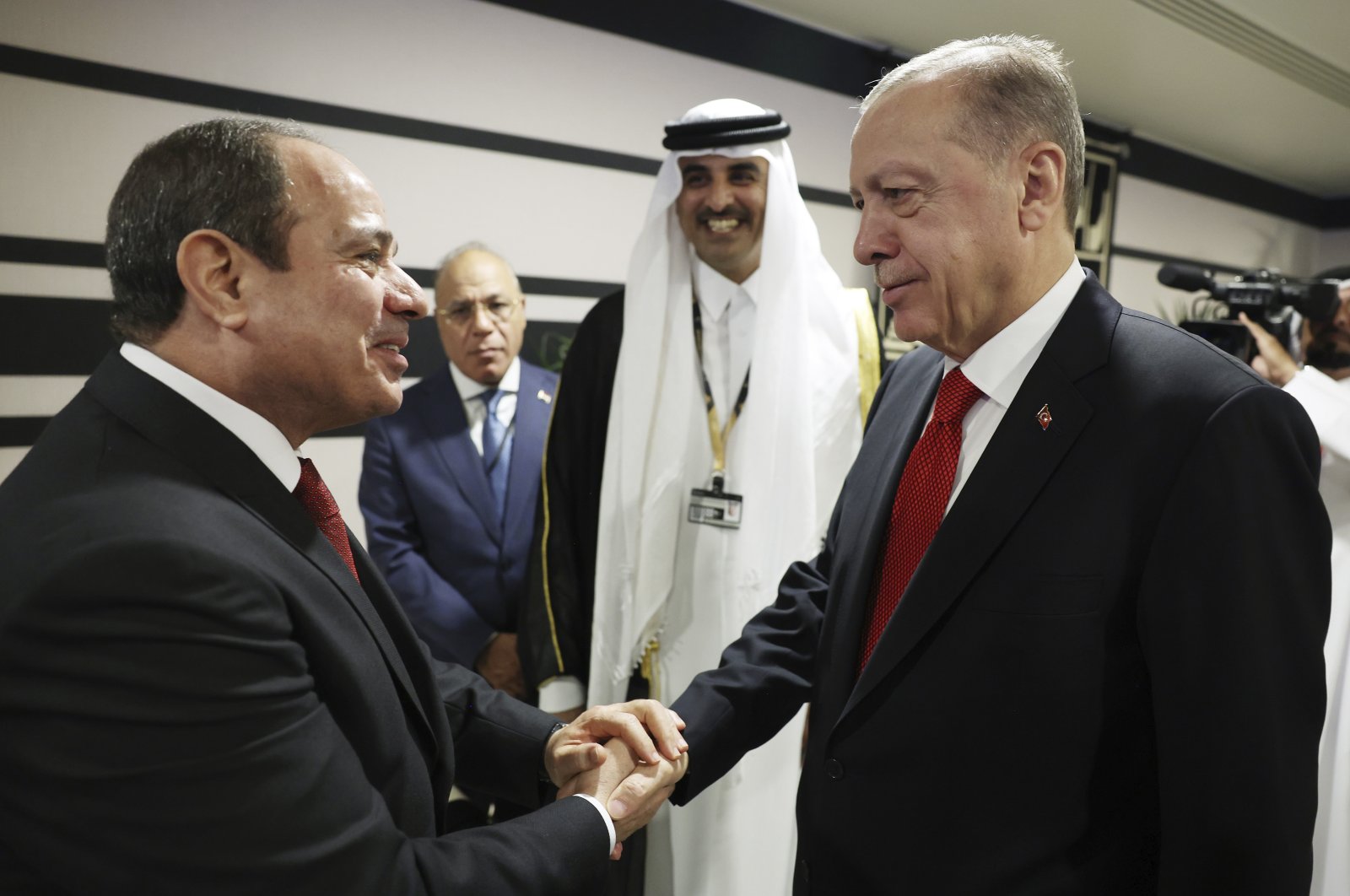
The handshake between Erdoğan and his Egyptian counterpart el-Sissi was not a spontaneous act. It took talks between the countries’ intelligence organizations and contact between different levels of bureaucracy and government to break the ice
The handshake between President Recep Tayyip Erdoğan and his Egyptian counterpart Abdel-Fattah el-Sissi has become the top topic in politics in many countries, particularly Türkiye.
The Turkish opposition and a large segment of the Turkish media criticized Erdoğan for the move and reminded him of his previous stance toward el-Sissi and the military overthrowing the Muslim Brotherhood government.
I disagree with these criticisms as a journalist who supported Erdoğan’s stand against the military coup in 2013 and his negative view of the el-Sissi government. I think that it was right to act like that at the time when there were upheavals and unrest in Türkiye that could have easily led to the loss of government control, but it was also a natural and democratic move to align with the democratically elected government and against the brutal military intervention.
But now as the years have passed, many important events have transpired. Unfortunately, there have been very sad and unfair trials in Egypt, however, the el-Sissi government has been running the country for a long time now and Türkiye should build good relations with Egypt for the common interests of both countries.
'Development of bilateral ties'
The Egyptian president's spokesperson, Bassam Rady, said that the handshake between the two leaders would mark the beginning of the development of bilateral relations. For his part, Erdoğan also said while he was traveling back from Qatar that further actions would follow to rebuild relations.
"The historical ties between the Turkish and Egyptian peoples are very important to us. What prevents it from being like that again? We have provided proof of our good intentions," he told journalists accompanying him on his Qatar trip.
The handshake was not spontaneous. It took talks between the countries’ intelligence organizations and contact between different levels of bureaucracy and government to break the ice over a couple of years. In short, diplomacy channels were open to creating a climate for Erdoğan to thaw relations.
According to Middle East Eye, it was Qatari mediation that made the handshake happen. But in Turkish media, articles came out claiming that it was a gesture by el-Sissi. According to reports, the Egyptian leader treated Turkish officials to mango juice, which opened the door for the dialogue. Whatever the catalyst now, this handshake might open a new door for dialogue but I should also highlight that the handshake does not solve all the issues and clashing interests between the two countries.
Possibility of maritime deal
There are clashing interests in Libya for example. Can there be a way to satisfy both parties? There is also panic in Greece about the possibility of a maritime deal between Türkiye and Egypt. Turkish channels reported that Athens already sent three ministers to Cairo after the handshake.
This handshake broke a long-time framework. Since 2013, bilateral relations have remained sort of beneath the surface. Türkiye and Egypt have not deployed ambassadors since 2013. This situation brought about different alignments in the Mediterranean and going back to pre-2013 conditions could change the existing balance in the area to the disadvantage of some countries. However, it is the right move for both Cairo and Ankara, and their collaboration will bring about a better and more peaceful Middle East and Mediterranean.
I believe that politics is an art of adaptation. Good leaders are those who can adapt themselves to new situations and change their positions according to the benefits of their countries. I see this handshake as a sign of adaptation.
